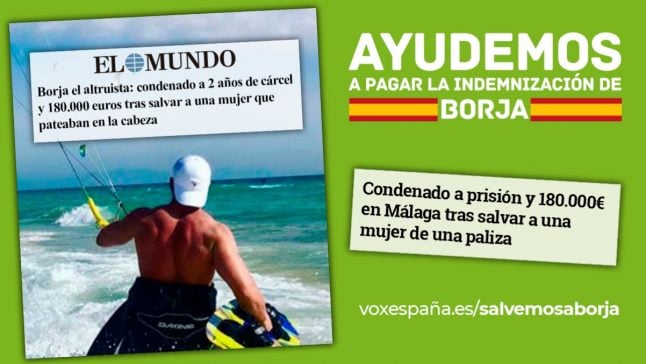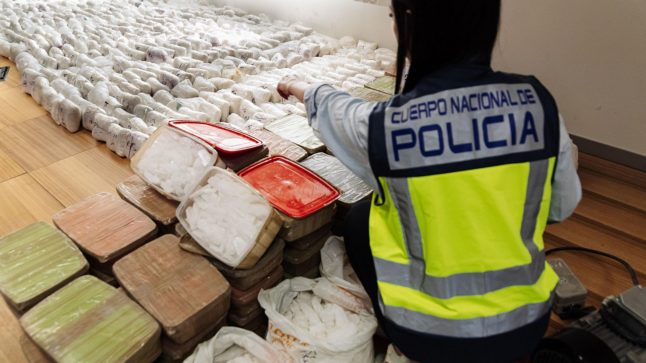In February 2015 the 22-year-old chased and punched a man in the head who had just stolen a woman's purse in the southern town of Fuengirola near Malaga, causing his death two days later from a brain hemorrhage.
A court in Malaga in December 2018 sentenced the man, identified as Borja W.V., to two years in jail and ordered that he pay €180,000 in compensation to the victim's two daughters. An appeals court upheld the ruling in April, although he has not yet been jailed.
In Spain prison sentences of under two years don't generally result in prison time being served if the convicted person has no previous criminal record. But the court threatened to jail Borja if he did not pay the compensation.
Spain's conservative media has focused on the case, especially after far-right party Vox launched a crowdfunding campaign on Tuesday to help Borja pay the compensation and avoid going to jail.
¡110.000€! ???
Un honor para VOX haber sido el canal para que los españoles, al margen del color político, hayan podido ayudar a Borja.
Borja nos ha trasladado su profundo agradecimiento por vuestra ayuda. Su deseo es pagar él lo que falta,por eso hemos cerrado ya la campaña. pic.twitter.com/KWtuQIDnoT
— VOX ?? (@vox_es) July 16, 2019
The campaign has so far raised at least €180,000.
Public prosecutors on Tuesday recommended that Borja's prison sentence be suspended and that he be given five years to pay the compensation. A judge has yet to rule on this recommendation.
Vox has proposed that Spain's gun regulations be reformed to make it easier to own a firearm and to ensure people who shoot home invaders are not prosecuted by the law, as is the case in the United States.
A top Vox leader, Ivan Espinosa de los Monteros, called Borja “a hero” and “an example for Spanish society, who could end up in jail for having helped a “woman”.
Several legal experts, however, have defended the court's decision and accused Vox of using the case for political means.
“It is not self-defence to kill someone with their firsts after chasing them to recover a stolen bag and then leave without calling the police,” tweeted Joaquim Bosch, spokesman for Judges for Democracy, an association of judges and magistrates.
In an editorial, daily newspaper El Mundo said Borja “took justice into his own hand” and accused Vox of “populism”.
“Spain needs more respect for the law,” it added.
Official statistics show that Spain's rates of homicide and burglary are lower than most of its European neighbours.
READ ALSO: Far-right Vox party wants to loosen Spain's gun laws



 Please whitelist us to continue reading.
Please whitelist us to continue reading.
Member comments